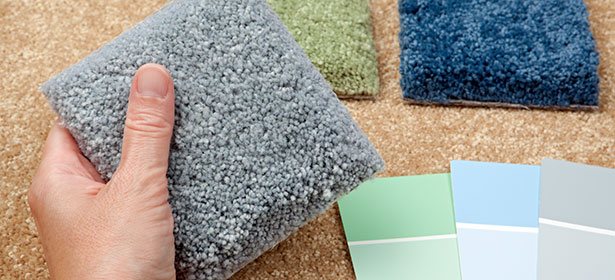Carpets are plush and therefore there is a need for padding. The ideal padding is useful in many ways.
- It offers extra cushioning.
- It helps to increase carpet life by absorbing the majority of foot traffic impact.
- Some pads with extra barriers protect subflooring from spills.
- It acts as an extra home insulator [savings on energy bills].
Flooring Domain is a popular online directory dedicated to everything associated with carpets and floorings. Before you visit the platform to look for a reliable carpet supplier in your locality, it is sensible to learn the basics about carpet padding types.
Common carpet padding types
Rebond pad
It is a popular residential padding choice designed from recycled material. You can find a lot of options in terms of density and thickness. These are even accessible in different grades that represent the quality of the recycled material. Higher quality means better Rebond pad performance, but you will need to pay more.
An 8 lb. density rebond pad is generally recommended for homes with pets and kids as it offers great support and durability.
Foam pad
It is a lightweight and low-priced padding alternative. Foam cannot tolerate plenty of traffic. However, it flattens quickly making your carpet feel uncomfortable underfoot. Frothed foam is a type of foam pad that is pricier than rebond.
Rubber pad
It is capable to outlive the carpet. In a commercial setting, where there is high traffic, this is a great option. It is regarded as a luxury because of its high cost.
Specialty carpet pads
Specialty carpet pads are costly than regular Rebond pads. It is designed to resolve specific issues like moisture, pet odor, air filter, etc. For example, moisture barrier padding, memory foam padding, odor eating padding, pad infused with baking soda, air-filtering padding, etc. Is specialty pad worthy or not is a debatable subject!
The range of density level for the majority of carpet pads lies between 3lb. to 10lb. Choose a density that fulfills your needs. The 6 lb. and 8 lb. are popular choices for residential use. The former is soft underfoot, while the latter is durable and extends the carpet’s lifespan.
Now, you know about carpet padding types visit Flooring Domain to post your carpet installation project. Here are some tips to consider while choosing a carpet supplier that even offers installation services. Choose a carpet supplier who offers quality and affordability.
- A good supplier has sufficient stock and alternatives.
- Check the carpet quality. The feel on touching gives an idea and if you are dissatisfied then visit the next supplier and check the quality of carpets the offer.
- Consider the carpet rates. Obviously, the better the carpet quality, the higher the rates! Ensure to meet several suppliers and be aware of the market rates before you make a buying decision from a specific supplier.
Flooring Domain is the best directory to find an ideal carpet supplier around your locality. The professionals can help you decide the kind of padding you will need to protect the new carpet warranty.

